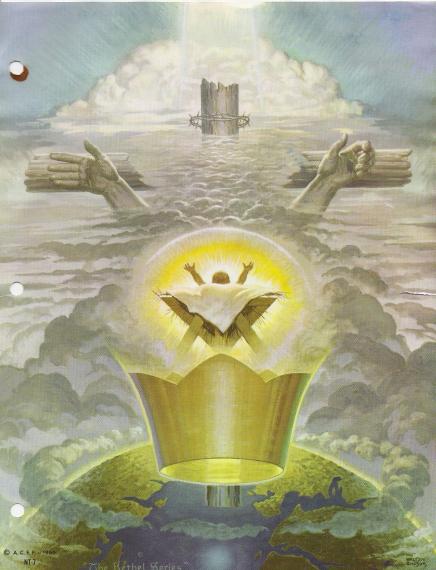 Yesterday in my post, Jesus on the Buffet, I wrote about the most important question in the world: Who do you say Jesus is?
Yesterday in my post, Jesus on the Buffet, I wrote about the most important question in the world: Who do you say Jesus is? Jesus had asked this question of His disciples. And Peter answered, “The Christ of God.” (Luke 9:20). Peter was correct in his confession. But he was incomplete in his understanding. He knew Jesus was the Messiah, but he did not know what it meant for Jesus to be the Messiah.
Peter’s “messiah” was surely not a suffering messiah. As Jesus began to explain His mission, to suffer, be killed, and rise again, Peter has a violent negative reaction, "Never, Lord!" he said. "This shall never happen to you!" (Matt. 16:22). The very same Peter who rejoiced in identifying Jesus as Messiah, rejected the possibility of Him being a suffering Savior. Peter’s idea of “messiah” was a distorted picture, a messiah of his own hopes and aspirations.
Peter believed that stopping Jesus was the loving thing to do. No doubt, Peter thought that this would be the greatest display of love to the Savior that could ever be expressed. But, Jesus knew the most loving thing would be to follow God’s plan that would take Him to the cross of Calvary. Peter’s version of love would have stopped salvations plan. God’s version of love made salvation available to all who will believe.
At this point Jesus clues them in to their future travel itinerary. He said, "The Son of Man must suffer many things, and be rejected by the elders and chief priests and scribes, and be killed, and be raised the third day."(9:22).
Who is the Messiah?
(1) The one who must suffer. The cross of the Christ was mandatory. Notice how Jesus uses the word “MUST.” In other words, this thing wasn’t up for a vote. It wasn’t just some proposal that He was throwing on the table for a committee to think about it. This was His divine mission. He had to go to Jerusalem to suffer.
(2) The one who must be rejected. The cross of Christ involved more than the physical wooden cross, the instrument of His death. Jesus had to suffer the rejection of His people and their leaders. The Lord had to suffer not only the rejection of men, and death on that cross, with all its physical pain, but He had to suffer the alienation from God while bearing the sins of the world. The extent of His suffering is infinitely beyond our ability to grasp.
(3) The one who must die. Jesus’ death was God’s plan for our salvation. It was no accident, or coincidence, it was His whole mission. Leave out the death of Jesus, and you have no Messiah. The Christ had to suffer death on our behalf.
(4) The one who would be raised to life. The good news is that Jesus did not stay dead, but destroyed sin and death by His resurrection. The third day He came back from the grave. And now He gives life to all who come to Him in faith.
Tomorrow we will examine what kind of disciples we are to be if Jesus is this mind of Messiah.






No comments:
Post a Comment
Thank you for commenting. I appreciate your thoughts and opinions on this post.